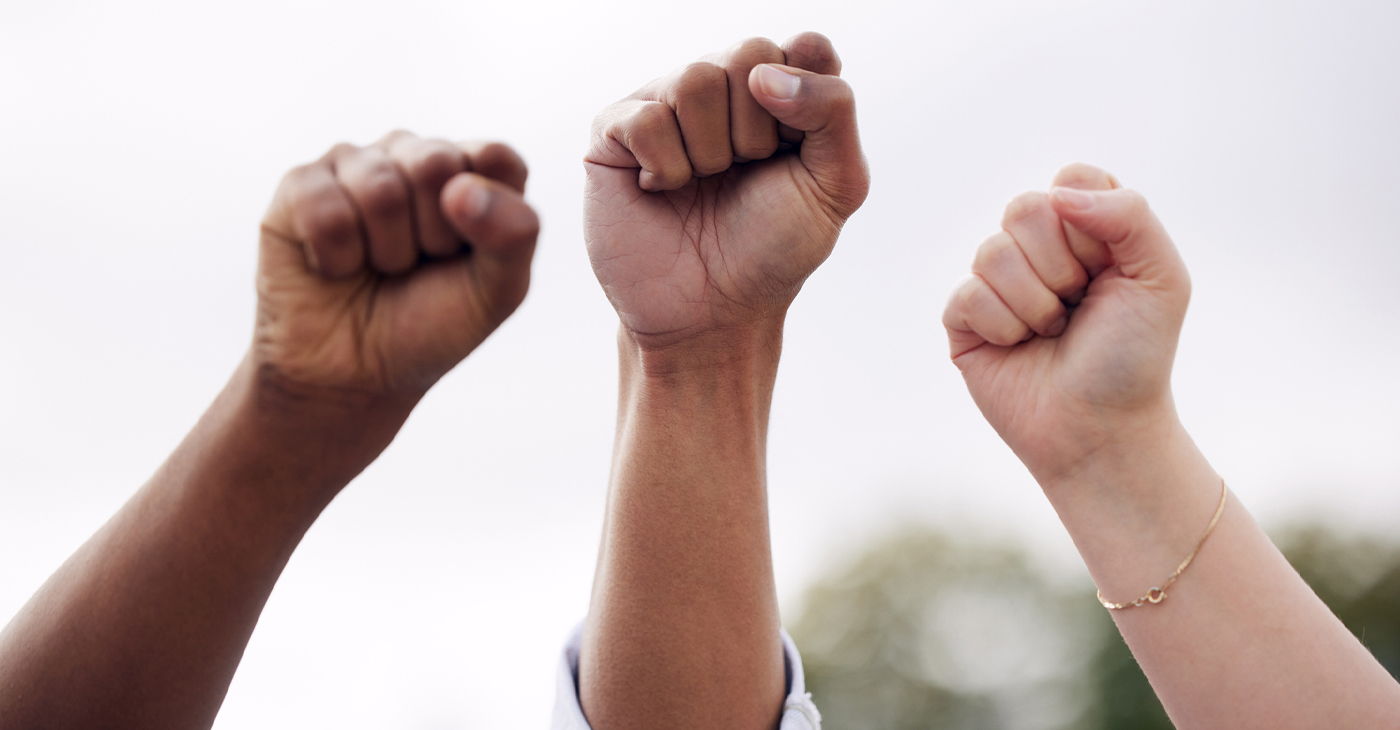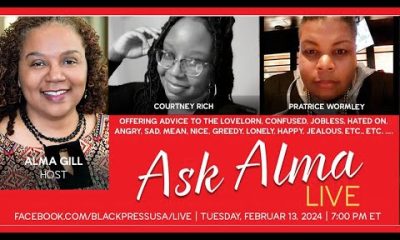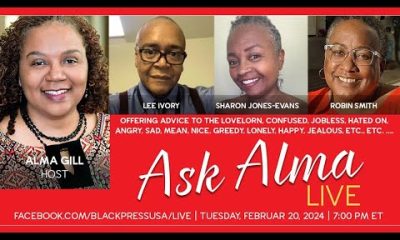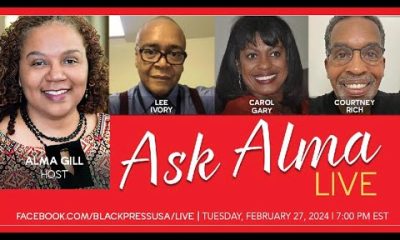Commentary
COMMENTARY: Hopkins, City MOU
THE AFRO — The MOU would require an agreement with the Baltimore Police Department.
Submitted to the AFRO by Mayor Catherine Pugh
Nearly 70% of U.S. colleges and universities, both public and private, with 2500 or more students – which comes to more than 4000 schools — have sworn, armed police officers to provide law enforcement services on campus. Every public institution in Baltimore has an armed police department, including Morgan State University, all of the University of Maryland’s professional schools, the University of Baltimore and Coppin State University.
A report on college campus crime clearly states that crime on these campuses is on the rise, by anywhere from 68-75%. The idea of a campus police force dates back to the late 1800s, when Yale University began an agreement with the New Haven Police Department to have two of their officers assigned exclusively to the campus as a means of deterring crime and improving student-police relations.
There is not a single person who can say they are satisfied with where our city is right now as it relates to crime. Too many shootings, too many illegal guns on our streets, just too many violent acts and too many people dying unnecessarily in our streets. Creating jobs and apprenticeship programs while addressing homelessness and drug addiction remain a part of improving the quality of life in Baltimore.
Our efforts to drive down crime also include intervention programs like Safe Streets (which we are expanding) and ROCA, among many others, helped us reduce crime in every single category last year. Unfortunately, we are currently experiencing a spike in crime. In response, we are working to add more police to our team, even though last year, despite a significant increase in applications, we lost 36 officers more than we hired. Not acceptable. We were already at a deficit when I took office two years and two months ago, with 545 less officers than budgeted. That will improve. Since putting the applications on line they have tripled. We’ve also certified our cadet program which will help us attract more residents from Baltimore.
With the introduction of Michael Harrison to be our Police Commissioner, BPD is preparing to undergo a complete makeover. Also, with the support of the state, the Department will significantly upgrade our technology platforms, thereby improving transparency, oversight and accountability.
Four days a week, at eight o’clock in the morning, our Violence Reduction Initiative team meets at Police Headquarters to dissect the crime occurring in the streets and, with various city agencies, attack the issues at the heart of crime. Then, once a week, the engaged team walks with me through crime-ridden neighborhoods to observe what’s going on, engage community leaders and offer solutions. Everyone in our city deserves to feel safe — residents, business owners, employees, students and visitors. I remember Mr. Flan Couch, Jr., who headed the police department at Morgan when I was a student. We all felt safe because of his forces’ presence.
Newly nominated Police Commissioner Michael Harrison says that in New Orleans they have seven universities – five private and two public; all of them have private armed police departments. He says the formation of a Hopkins police force would be good for Baltimore if we craft a detailed memorandum of understanding (MOU) that would make a Hopkins police force accountable to the city. I agree. It helps Baltimore. Because just like Morgan, the University of Baltimore, Coppin and the University of Maryland, we don’t have to patrol their campus grounds.
The MOU would require an agreement with the Baltimore Police Department that Hopkins be in compliance with our consent decree. It could also restrict the number of police they can hire. The MOU could require Hopkins officers to be trained by BPD, just like Coppin State University Police, as we are required by the consent decree to change the cultural behavior of the department, provide constitutional training, as well as community engagement and bias free policing. The MOU would also require that all serious crimes be investigated by the Baltimore Police Department. This strategy works in other cities and could work in Baltimore. Baltimore needs all the assistance it can get in reducing violence. Spikes in crime impede progress on every front and are a serious drain on the quality of life that all our citizens deserve. We’re working to reduce violence, improve the quality of life in our city and make all residents, business owners, employees and students feel safe in Baltimore. A Hopkins police team with city oversight can work for everybody.
The opinions on this page are those of the writers and not necessarily those of the AFRO.
Send letters to The Afro-American • 1531 S. Edgewood St. Baltimore, MD 21227 or fax to 1-877-570-9297 or e-mail to editor@afro.com.
This article originally appeared in The Afro.
Commentary
Opinion: Lessons for Current Student Protesters From a San Francisco State Strike Veteran
How the nation’s first College of Ethnic studies came about, bringing together Latino, African American and Asian American disciplines may offer some clues as to how to ease the current turmoil on American college campuses over the Israel-Hamas war. After the deadline passed to end the Columbia University encampment by 2 p.m. Monday, student protesters blockaded and occupied Hamilton Hall in a symbolic move early Tuesday morning. Protesters did the same in 1968.

By Emil Guillermo
How the nation’s first College of Ethnic studies came about, bringing together Latino, African American and Asian American disciplines may offer some clues as to how to ease the current turmoil on American college campuses over the Israel-Hamas war.
After the deadline passed to end the Columbia University encampment by 2 p.m. Monday, student protesters blockaded and occupied Hamilton Hall in a symbolic move early Tuesday morning.
Protesters did the same in 1968.
That made me think of San Francisco State University, 1968.
The news was filled with call backs to practically every student protest in the past six decades as arrests mounted into hundreds on nearly two dozen campuses around the country.
In 1970, the protests at Kent State were over the Vietnam War. Ohio National Guardsmen came in, opened fire, and killed four students.
Less than two weeks later that year, civil rights activists outside a dormitory at Jackson State were confronted by armed police. Two African American students were killed, twelve injured.
But again, I didn’t hear anyone mention San Francisco State University, 1968.
That protest addressed all the issues of the day and more. The student strike at SFSU was against the Vietnam war.
That final goal was eventually achieved, but there was violence, sparked mostly by “outside agitators,” who were confronted by police.
“People used the term ‘off the pigs’ but it was more rally rhetoric than a call to action (to actually kill police),” said Daniel Phil Gonzales, who was one of the strikers in 1968.
Gonzales, known as the go-to resource among Filipino American scholars for decades, went on to teach at what was the positive outcome of the strike, San Francisco State University’s College of Ethnic Studies. It’s believed to be the first of its kind in the nation. Gonzales recently retired after more than 50 years as professor.
As for today’s protests, Gonzales is dismayed that the students have constantly dealt with charges of antisemitism.
“It stymies conversation and encourages further polarization and the possibility of violent confrontation,” he said. “You’re going to be labeled pro-Hamas or pro-terrorist.”
That’s happening now. But we forget we are dealing not with Hamas proxies. We are dealing with students.
Gonzales said that was a key lesson at SF State’s strike. The main coalition driving the strike was aided by self-policing from inside of the movement. “That’s very difficult to maintain. Once you start this kind of activity, you don’t know who’s going to join,” he said.
Gonzales believes that in the current situation, there is a patch of humanity, common ground, where one can be both pro-Palestine and pro-Israel. He said it’s made difficult if you stand against the belligerent policies of Benjamin Netanyahu. In that case, you’re likely to be labeled antisemitic.
Despite that, Gonzales is in solidarity with the protesters and the people of Gaza, generally. Not Hamas. And he sees how most of the young people protesting are in shock at what he called the “duration of the absolute inhumane kind of persecution and prosecution of the Palestinians carried out by the Israeli government.”
As a survivor of campus protest decades ago, Gonzales offered some advice to the student protesters of 2024.
“You have to have a definable goal, but right now the path to that goal is unclear,” he said.
About the Author
Emil Guillermo is a journalist and commentator. A veteran newsman in TV and print, he is a former host of NPR’s “All Things Considered.”
Activism
Oakland Post: Week of May 1 – 7, 2024
The printed Weekly Edition of the Oakland Post: Week of May 1 – 7, 2024

To enlarge your view of this issue, use the slider, magnifying glass icon or full page icon in the lower right corner of the browser window. ![]()
Activism
Oakland Post: Week of April 24 – 30, 2024
The printed Weekly Edition of the Oakland Post: Week of April 24 – 30, 2024

To enlarge your view of this issue, use the slider, magnifying glass icon or full page icon in the lower right corner of the browser window. ![]()
-

 Community3 weeks ago
Community3 weeks agoFinancial Assistance Bill for Descendants of Enslaved Persons to Help Them Purchase, Own, or Maintain a Home
-

 Business3 weeks ago
Business3 weeks agoV.P. Kamala Harris: Americans With Criminal Records Will Soon Be Eligible for SBA Loans
-

 City Government4 days ago
City Government4 days agoCourt Throws Out Law That Allowed Californians to Build Duplexes, Triplexes and RDUs on Their Properties
-

 Activism4 weeks ago
Activism4 weeks agoOakland Post: Week of April 10 – 16, 2024
-

 Activism2 weeks ago
Activism2 weeks agoOakland Post: Week of April 24 – 30, 2024
-

 Community3 weeks ago
Community3 weeks agoAG Bonta Says Oakland School Leaders Should Comply with State Laws to Avoid ‘Disparate Harm’ When Closing or Merging Schools
-

 Community3 weeks ago
Community3 weeks agoRichmond Nonprofit Helps Ex-Felons Get Back on Their Feet
-

 Community3 weeks ago
Community3 weeks agoOakland WNBA Player to be Inducted Into Hall of Fame






















































